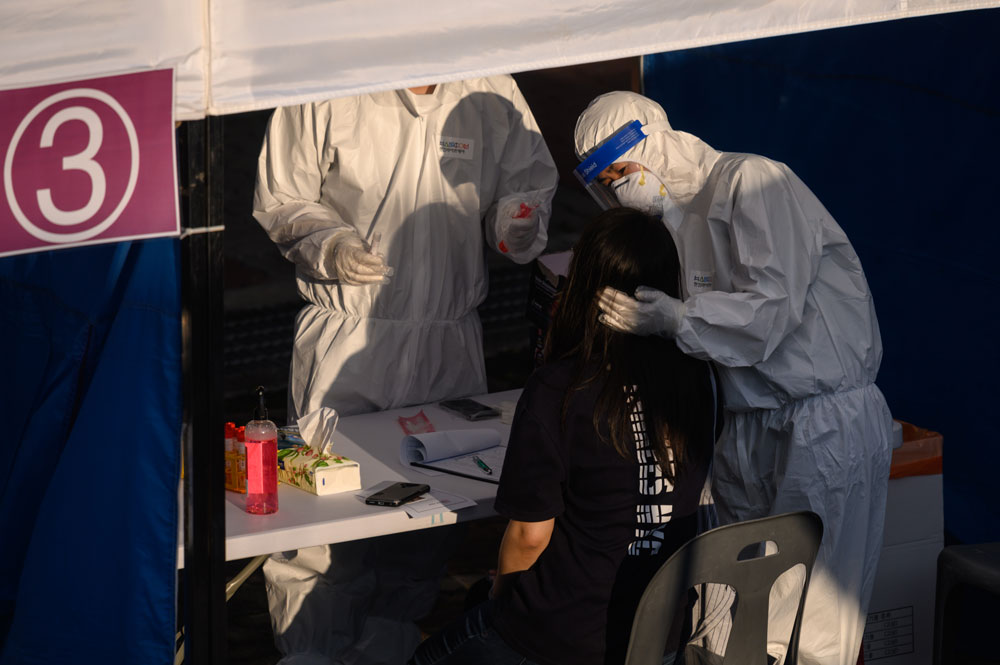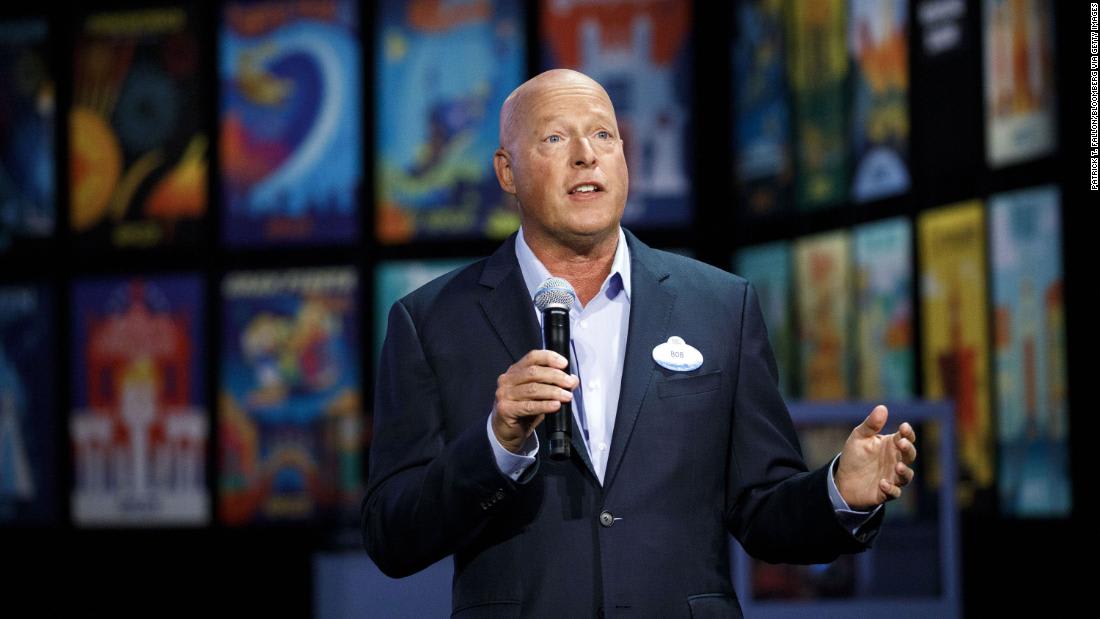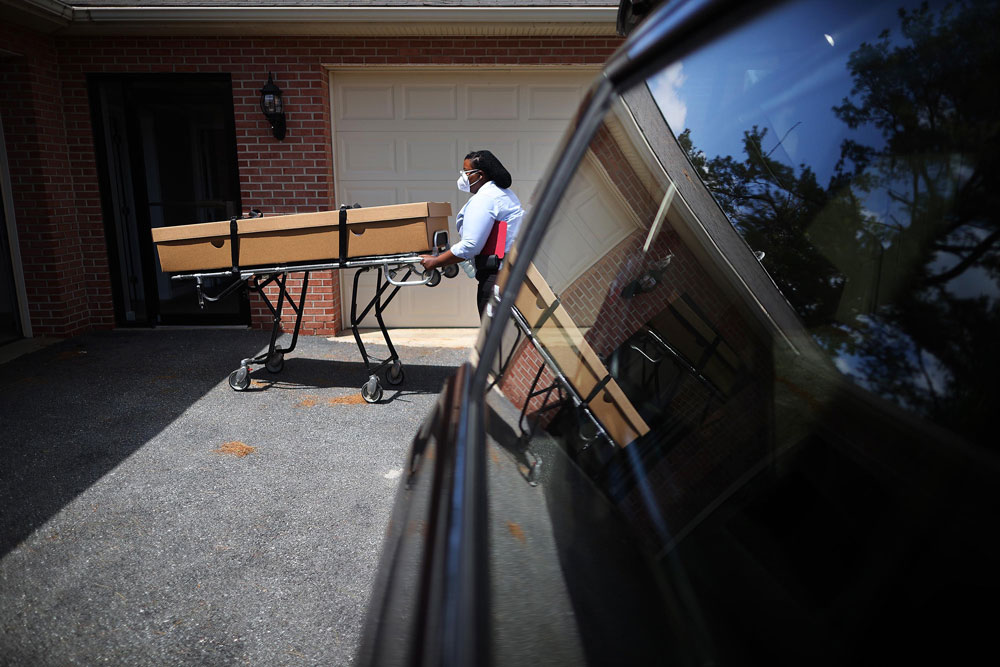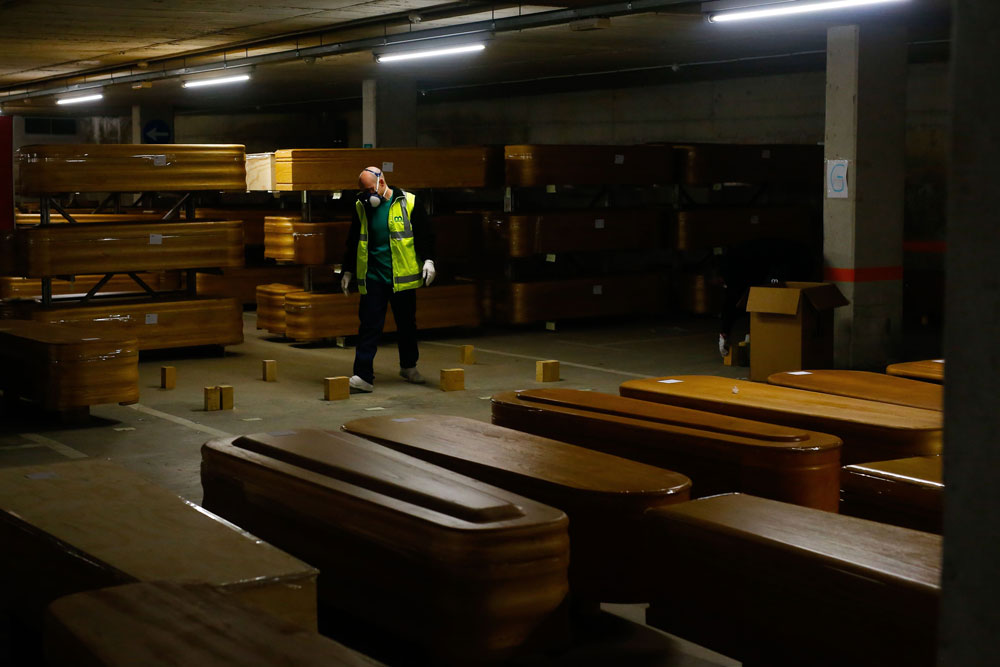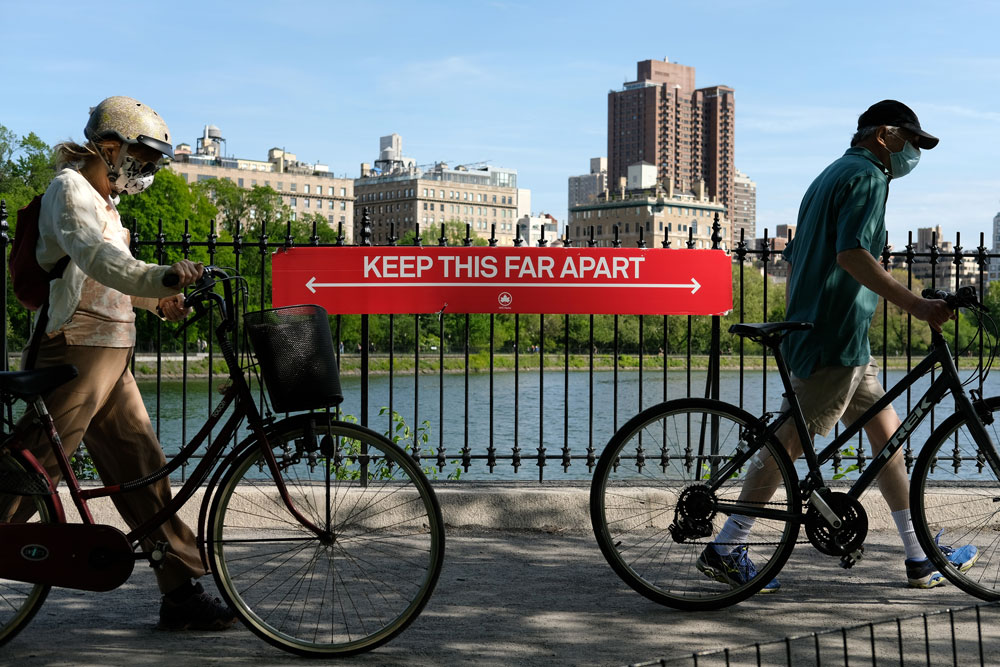
Public health officials have called on people to stay six feet apart to slow the spread of coronavirus through so-called respiratory droplets. But three experts are warning that six feet may not be enough – and they say the world needs to take airborne transmission of the virus seriously.
In a commentary published in the journal Science, the experts called for “regular, widespread testing” to find asymptomatic cases, and they pointed to places where mask wearing is universal and the virus has been controlled, like Hong Kong and Taiwan. World Health Organization guidance might not be enough in all situations, they said.
“Evidence suggests that (the novel coronavirus) is silently spreading in aerosols exhaled by highly contagious infected individuals with no symptoms,” wrote Chia Wang of National Sun Yat-sen University in Taiwan and Kimberly Prather and Dr. Robert Schooley of the University of California, San Diego.
“Increasing evidence for (the coronavirus) suggests the six foot WHO recommendation is likely not enough under many indoor conditions where aerosols can remain airborne for hours, accumulate over time, and follow air flows over distances further than six feet,” they wrote.
The three experts, who are specialists in chemistry and infectious diseases, said aerosols from breathing and speaking “can accumulate, remain infectious in indoor air for hours, and be easily inhaled deep into the lungs.” That makes wearing masks all the more essential, they said, even when people are keeping their distance.
More on this: The US Centers for Disease Control and Prevention has focused on so-called respiratory droplets produced when a person coughs or sneezes. The droplets don’t linger in the air for long, but the CDC says they “can land in the mouths or noses of people who are nearby or possibly be inhaled into the lungs.”
Spread is more likely when people are in close contact with one another, or “within about 6 feet,” the CDC says. That’s because respiratory droplets are relatively large and fall to the ground – unlike aerosols, which are smaller and more likely to stay in the air longer.
Despite the focus on droplets from US health officials and others, the experts said “a large proportion of the spread of coronavirus disease 2019 (Covid-19) appears to be occurring through airborne transmission of aerosols produced by asymptomatic individuals during breathing and speaking.”
While more research is needed, they called for robust testing schemes and said people need to mask up. “For society to resume, measures designed to reduce aerosol transmission must be implemented, including universal masking and regular, widespread testing to identify and isolate infected asymptomatic individuals,” they said.
